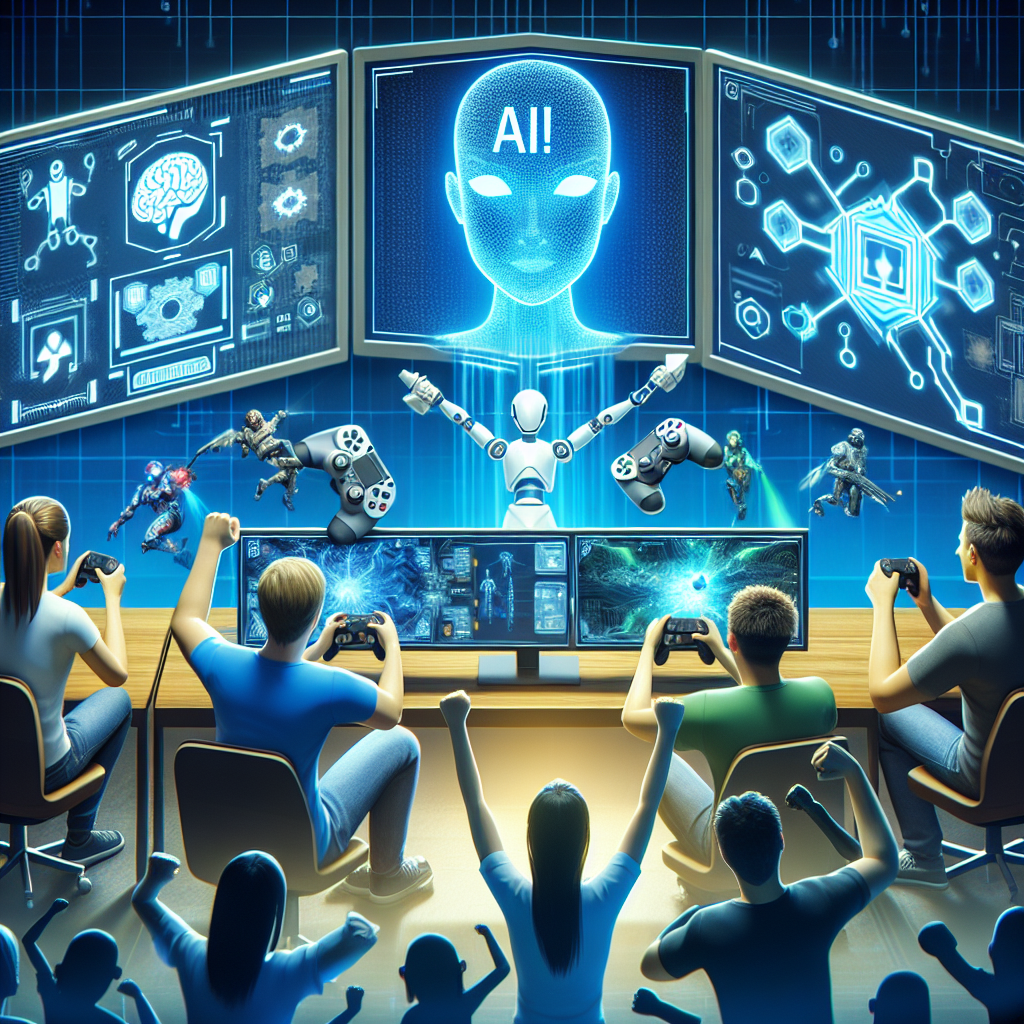The Impact of AI on Player Engagement
Artificial Intelligence (AI) has become an increasingly important part of the gaming industry in recent years. AI has the potential to revolutionize player engagement in games by providing more personalized and immersive experiences. From creating more intelligent NPCs to optimizing gameplay mechanics, AI can enhance the overall gaming experience for players. In this article, we will explore the impact of AI on player engagement and how it is shaping the future of gaming.
AI in Gaming
AI has been used in gaming for many years, but recent advancements in technology have made it more sophisticated and powerful than ever before. AI can be used in a variety of ways in games, from improving the behavior of non-player characters (NPCs) to creating more realistic environments and gameplay mechanics.
One of the key ways that AI is impacting player engagement in games is through the development of more intelligent NPCs. NPCs are characters in a game that are controlled by the game’s artificial intelligence rather than by a human player. In the past, NPCs were often limited in their behavior and interactions with players, leading to a less immersive gaming experience. However, with advancements in AI technology, NPCs can now exhibit more complex behaviors and respond more realistically to player actions.
For example, AI can be used to create NPCs that learn from player behavior and adapt their actions accordingly. This can lead to more dynamic and challenging gameplay experiences, as players are forced to adapt to the changing tactics of their opponents. AI can also be used to create more realistic dialogue and interactions between NPCs and players, making the game world feel more alive and immersive.
In addition to improving NPC behavior, AI can also be used to optimize gameplay mechanics and create more personalized experiences for players. For example, AI algorithms can analyze player data to identify patterns in behavior and preferences, allowing developers to tailor the game experience to individual players. This can lead to more engaging and satisfying gameplay experiences, as players feel more connected to the game world and its characters.
AI can also be used to create more dynamic and responsive game environments. For example, AI algorithms can be used to generate procedurally generated content, such as levels, enemies, and items, that adapt to player actions and choices. This can create more replayability and variety in games, as players are constantly faced with new challenges and experiences.
Overall, AI has the potential to revolutionize player engagement in games by creating more immersive, personalized, and dynamic experiences. As AI technology continues to advance, we can expect to see even more innovative uses of AI in games that enhance the overall gaming experience for players.
FAQs
Q: How does AI improve player engagement in games?
A: AI can improve player engagement in games by creating more intelligent NPCs, optimizing gameplay mechanics, and creating more personalized experiences for players. AI can make NPCs more dynamic and challenging, tailor the game experience to individual players, and create more dynamic and responsive game environments.
Q: What are some examples of AI in gaming?
A: Some examples of AI in gaming include creating more intelligent NPCs, optimizing gameplay mechanics, and generating procedurally generated content. AI can also be used to analyze player data and behavior to tailor the game experience to individual players.
Q: How is AI shaping the future of gaming?
A: AI is shaping the future of gaming by creating more immersive, personalized, and dynamic experiences for players. As AI technology continues to advance, we can expect to see even more innovative uses of AI in games that enhance the overall gaming experience for players.
Q: What are some potential drawbacks of AI in gaming?
A: Some potential drawbacks of AI in gaming include concerns about privacy and data security, as AI algorithms may analyze and store player data. There are also concerns about AI replacing human creativity and intuition in game development, leading to a lack of originality and diversity in games.

